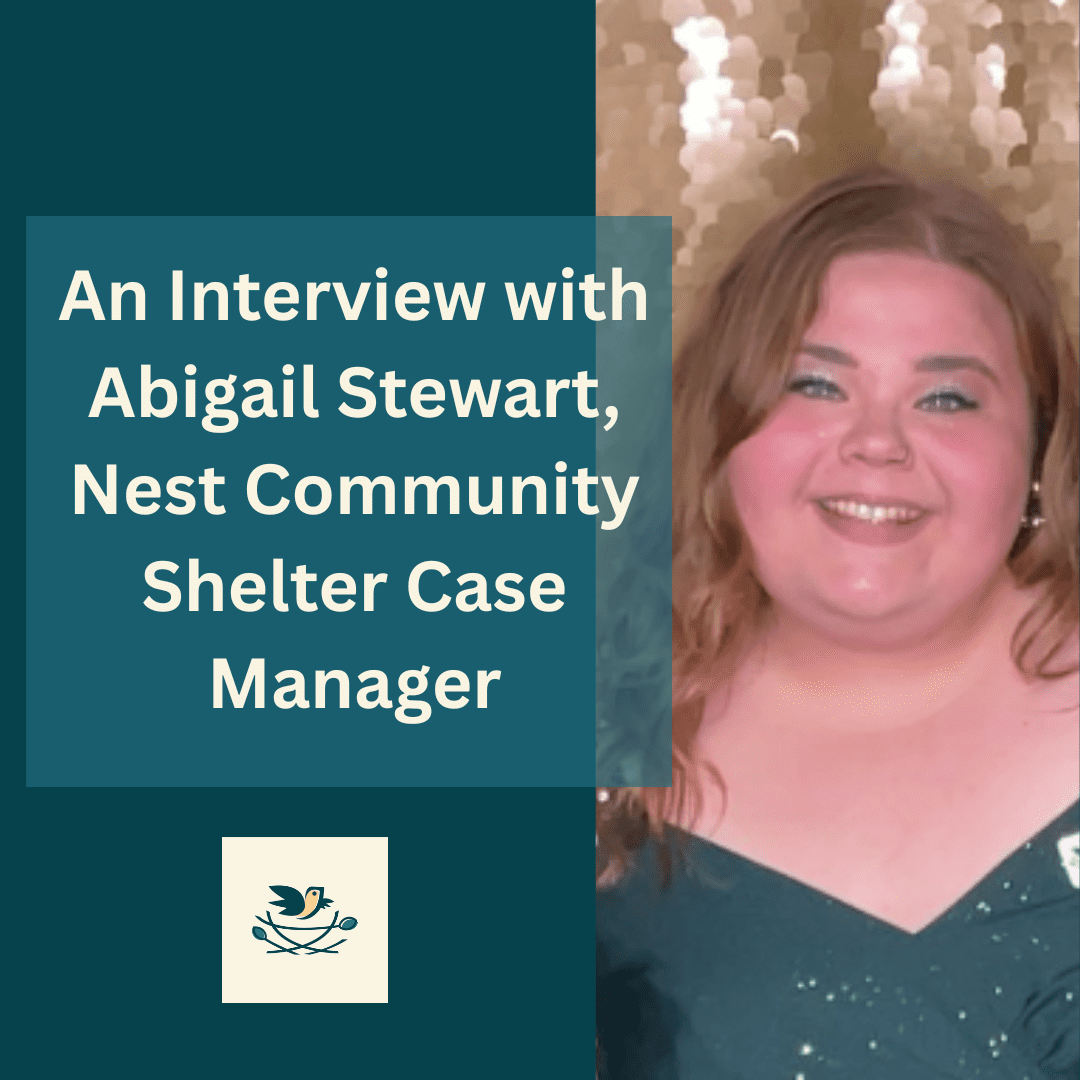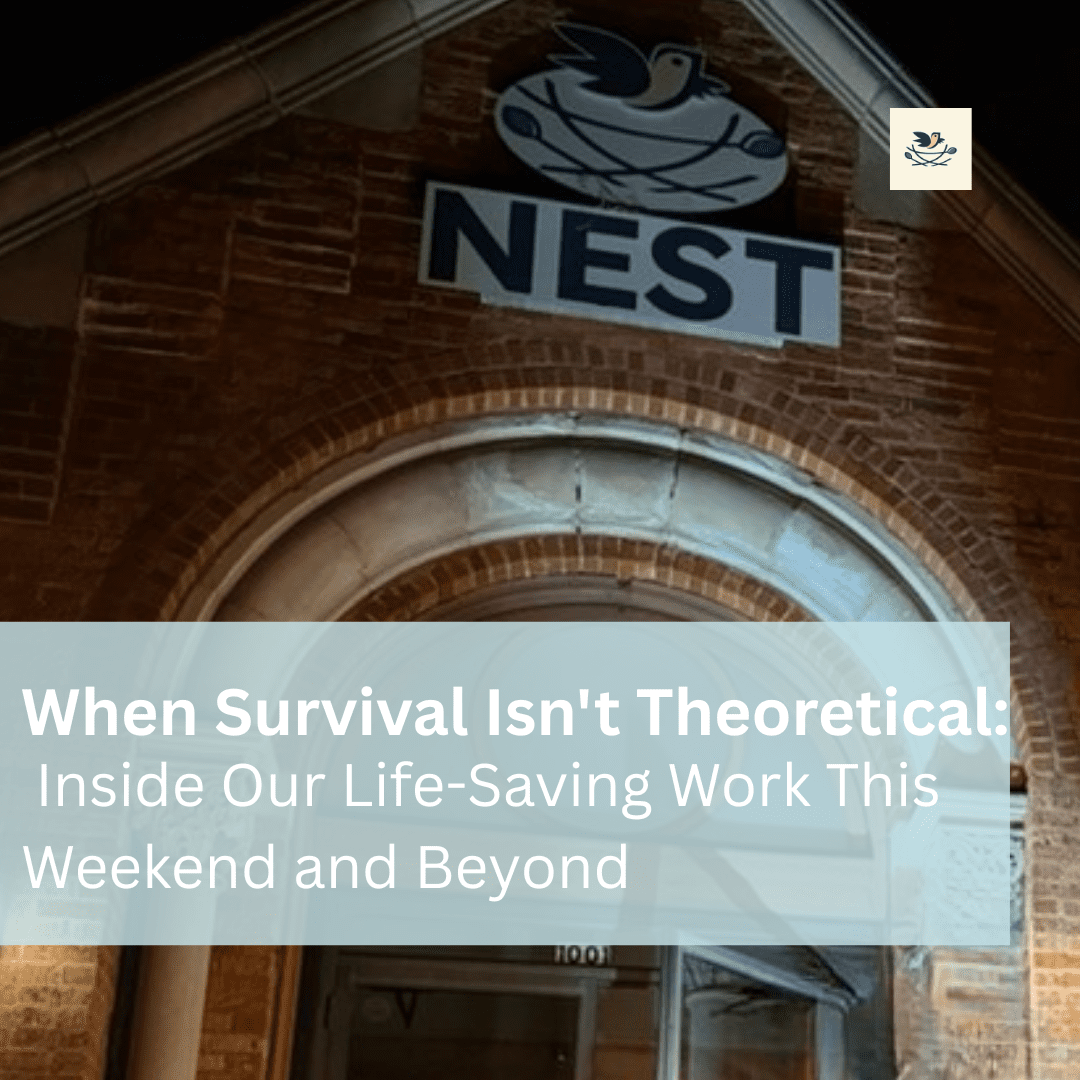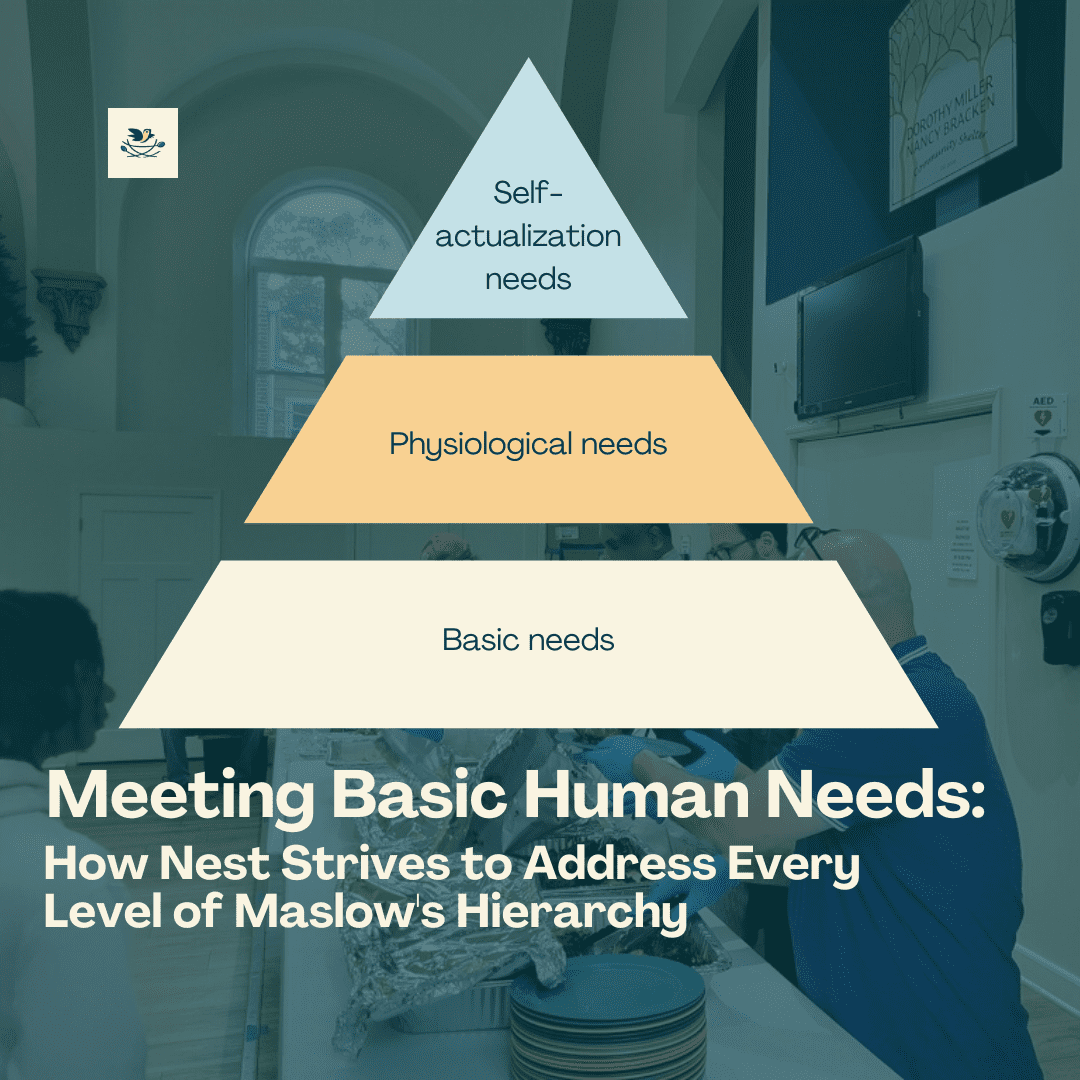
At Nest Community Shelter, we understand that when guests walk through our doors, chances are it might be the worst day of their lives; however, we see it as the beginning of a new chapter for them. We know that when guests enter our program at our shelter, they are making strides to improve their lives, rekindle healthy relationships, and be successful in their futures. One way we achieve this is through case management. Each of our guests works with our incredible Case Manager, Abigail Stewart. We recently sat down with her to talk about case management at Nest Community Shelter.
How did you become a case manager, and what does a typical day look like for you?
“I became a case manager through education and practical experience. I studied social work and gained early exposure through internships, which launched my career six years ago.
A typical day is a blend of structure and flexibility. I start by reviewing the status of our guests and updating case notes. Throughout the day, I meet one-on-one with the guests, coordinate with community partners, attend team meetings, and handle crises that may come up unexpectedly. I coach our flight instructors throughout the week in our program ‘Flight School’ as they meet with guests. This involves setting both short-term and long-term goals each week.”
What are the biggest misconceptions people have about individuals experiencing homelessness?
“The most damaging misconception is that homelessness is a personal failure or a choice. Most people become homeless due to a lack of affordable housing, sudden job loss, domestic violence, family breakdown, or medical/mental health issues. Another myth is that ‘they just don’t want help when many faces long waitlists or disqualifying criteria that keep them from getting services.”
How do you build trust with clients who may have had negative experiences with social services before?
“Trust starts with consistency and compassion. Meeting a person where they are. I try to create a space where clients feel safe being honest. I also acknowledge past trauma with systems and validate their experiences. Earning trust takes time, especially when people have been disappointed or harmed.”
What strategies have you found most effective in preventing people from returning to homelessness after they leave the shelter?
“I find it essential to remind our guests that their time at Nest represents just a moment in their lives, and they have the power to shape what tomorrow looks like. Achieving this will require honesty, self-reflection, and willingness to try new approaches. Guests experience more success when they have ongoing support, which can include community engagement, learning and applying life skills, and creating pathways to independence. It’s important to understand that prevention is not only about securing housing; it’s also about helping individuals maintain that housing.”
Can you walk me through how you develop an individualized plan for someone who comes to the shelter?
“First, I conduct a thorough intake, listening to the person’s story, strengths, needs, and goals. Then, with the support of our Flight School instructors and my guidance, we set short-term and long-term objectives together. I connect them with resources and break tasks into manageable steps. The plan is revisited regularly and adjusted as needed.”
What’s the most challenging aspect of your job that the public wouldn’t expect?
“One of the most challenging aspects of my job is often something that the public doesn’t see. While many may assume the most difficult part is being ‘in the trenches, the real challenge is watching motivated individuals get stuck because of broken systems. For example, someone may be doing everything right, looking for work, staying sober, and following their case plan. Still, they can’t find affordable housing because there isn’t availability, and often must rely on public transportation, which can be challenging.”
What are the most significant barriers that prevent people from maintaining stable housing once they leave?
“Several significant barriers impede progress in this area. These include an unstable income or potential job loss, issues surrounding mental health or the relapse of addiction, the absence of a supportive network, unresolved legal challenges, strained relationships with landlords, and difficulties in managing budgeting or responding to rent increases.
Even minor setbacks can lead to eviction or housing loss without a strong safety net.”
Can you share a success story that illustrates the impact of your work?
“Success is a series of small wins. I find small wins to be the most impactful for guests, whether that means coming back from a 30-day rehab program or earning their 90-day NA/AA chip in sobriety. For others, it’s about finding the courage to support their mental health through community mental health services and therapy, opening up a new journey of self-fulfillment. Sometimes, it’s as simple as arriving without a caring foundation, discovering supportive resources, and finding new purpose with confidence and structure leading to job opportunities.”
How can community members best support your work and the people you serve?
“Starting off with simple acts of kindness, challenging stigmas and humanizing people who are experiencing homelessness. Volunteering is important for the community even if it’s just for the night. Coming into the shelter to help serve or having a conversation with one of the guests can be transformative. Community members can also help by becoming Flight School instructors. This is a wonderful way of giving back and being a part of their stories. Donating time, funds or goods can all be found on our website. People can advocate for affordable housing, employ shelter guests or offer skill building workshops.”
If you could dispel one myth about homelessness or change one thing about how this issue is addressed, what would it be?
“I would dispel the myth that homelessness is caused by laziness or bad choices. The truth is, it’s usually caused by a lack of opportunity and support. If I could change one thing, it be to offer kindness no matter what and see how impactful a simple hello can change perspectives.”
We would like to extend our gratitude to Abigail for her impactful interview. If you are interested in learning more about Nest, how to support our mission or Flight School please reach out to us, under the “Get Involved” tab on our website or click here.




